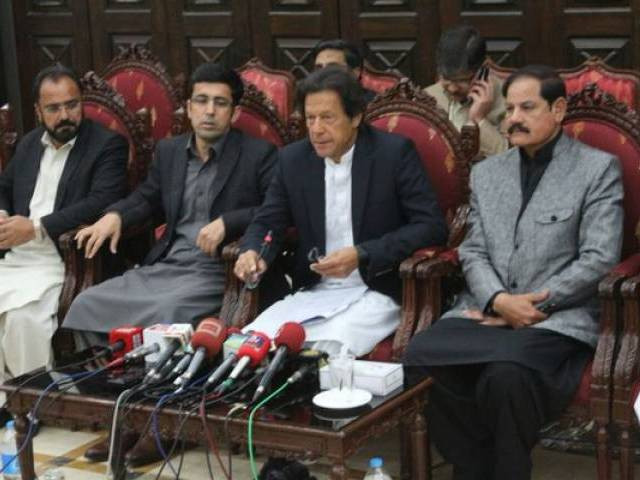Fixing healthcare in K-P
Imran Khan has clarified that no privatisation was under way when it came to the province’s hospitals

Imran Khan addresses a press conference in Peshawar on February 9, 2015. PHOTO: PTI
Imran Khan has clarified that no privatisation was under way when it came to the province’s hospitals; merely an improvement in standards and their management. He further said that the imposition of the Essential Services Act by the K-P government was in reality the provincial authorities acting in accordance with a decision by the Peshawar High Court on December 7, 2015. This has seemingly mollified nobody. There were strikes at some hospitals, partial strikes at others and no strikes at all at yet others. The Insaf Doctors Forum has condemned political interference, patients’ relatives have held protests and burned tyres and the PML-N leader Amir Maqam has stirred the pot by going to Hayatabad Medical Complex and appearing to incite doctors to strike. This has led Mr Khan to ask the chief minister to file an FIR against him and, in the midst of the political grandstanding, patient services are pushed aside and healthcare in general takes another step backwards. A poverty of competencies lies at the heart of the problem. Difficult as it may be, and inconvenient, stakeholder consultation prior to implementation is essential if the evident chaos is to be avoided. Un-making corrupt and bad practice is never easy, be it in healthcare or anywhere else. We prescribe a dose of management training for all concerned.
Published in The Express Tribune, February 11th, 2016.
Like Opinion & Editorial on Facebook, follow @ETOpEd on Twitter to receive all updates on all our daily pieces.














COMMENTS
Comments are moderated and generally will be posted if they are on-topic and not abusive.
For more information, please see our Comments FAQ